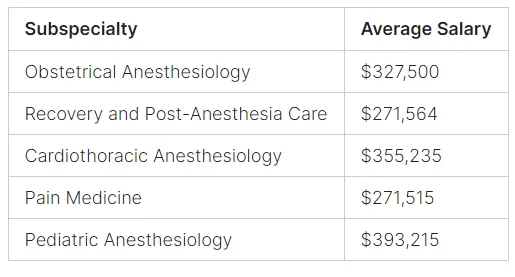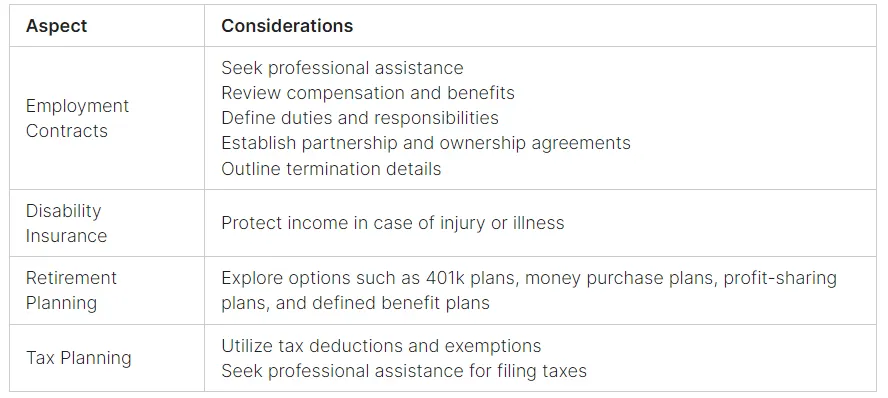Critical Care Anesthesiologist Salary: Understanding Earnings in Critical Care Settings

Are you considering a career as an anesthesiologist? If so, it's essential to understand the salary potential in this field. As a critical care anesthesiologist, your earning potential can vary based on various factors such as years of experience, location, type of practice, and incentives. By understanding these factors, you can make informed decisions to maximize your earning potential and secure your financial future.
The average salary for an anesthesiologist in 2021 is $291,645 per year, which includes base salary, bonuses, and profit sharing. However, this is just the starting point, as your salary can range from $101,000 to $407,000 per year based on the mentioned factors. Anesthesiologists with more experience tend to earn higher salaries, with those with over two decades of experience earning $365,000 or more.
Location also plays a significant role in determining your salary. States like New Jersey, Wyoming, and Massachusetts offer higher average salaries for anesthesiologists compared to other states. Additionally, the type of practice you choose can also impact your earnings. Outpatient care centers or offices of physicians generally offer higher compensation.
Don't forget about bonuses! Anesthesiologists often receive bonuses, with an average of $68,000 reported. Negotiating your employment contract is crucial to ensure fair compensation and consider additional benefits such as disability insurance, retirement planning, and tax planning to protect your salary and financial future.
Key Takeaways:
- The average salary for a critical care anesthesiologist is $291,645 per year.
- Salary potential can vary based on years of experience, location, and type of practice.
- Anesthesiologists with over two decades of experience can earn $365,000 or more.
- States like New Jersey, Wyoming, and Massachusetts offer higher average salaries.
- Bonuses, averaging $68,000, can significantly impact an anesthesiologist's earnings.
Factors Affecting Anesthesiologist Salaries

Several factors can influence an anesthesiologist's salary. Understanding these factors can help you determine your income range and make informed decisions to enhance your earning potential. Let's take a closer look at the key factors affecting anesthesiologist salaries.
Years of Experience
Years of experience play a significant role in determining an anesthesiologist's salary. As you gain more experience in the field, your earning potential tends to increase. Entry-level anesthesiologists can expect to earn an average salary of $303,000 per year, while experienced anesthesiologists with over two decades of experience can earn $365,000 or more annually.
Location
The geographical location of your practice can impact your salary as an anesthesiologist. Certain states tend to offer higher salaries compared to others. States like New Jersey, Wyoming, and Massachusetts are known to provide higher compensation for anesthesiologists.
Type of Practice
The type of practice you choose can also affect your salary as an anesthesiologist. Outpatient care centers and offices of physicians typically offer higher compensation compared to other practice settings. Consider the type of practice that aligns with your career goals and financial aspirations.
Incentives
Incentives, such as bonuses, can significantly increase an anesthesiologist's total compensation. These bonuses are often based on performance metrics, patient outcomes, or other factors determined by the employer. Taking advantage of these incentives can further boost your earning potential as an anesthesiologist.
By considering these factors - years of experience, location, type of practice, and incentives - you can gain a better understanding of your potential income range as an anesthesiologist. Assessing these factors and making adjustments accordingly can help you maximize your salary and achieve your financial goals.
Related: Tips for Negotiating Anesthesiologist Salary
Subspecialties and Salary Ranges

Within the field of anesthesiology, there are various subspecialties that can impact salary ranges. Anesthesiologists specializing in different areas earn varying levels of compensation. Here's a breakdown of some of the highest-paying subspecialties and their corresponding salary ranges:
Obstetrical Anesthesiology
Obstetrical anesthesiologists focus on providing pain relief during childbirth and assisting with labor and delivery. They play a crucial role in ensuring the comfort and well-being of both the mother and the baby. On average, obstetrical anesthesiologists earn an annual salary of $327,500.
Recovery and Post-Anesthesia Care
Anesthesiologists specializing in recovery and post-anesthesia care are responsible for monitoring patients as they wake up from anesthesia and ensuring a smooth transition to the recovery phase. Their average starting salary is $271,564 per year.
Cardiothoracic Anesthesiology
Cardiothoracic anesthesiologists work closely with cardiac and thoracic surgeons to provide anesthesia and manage the patient's vital functions during heart and chest surgeries. Their specialized expertise earns them an average salary of $355,235 per year.
Pain Medicine
Anesthesiologists specializing in pain medicine focus on managing chronic and acute pain conditions. While their salaries tend to be lower compared to other subspecialties, the average annual income for anesthesiologists in pain medicine is $271,515.
Pediatric Anesthesiology
Pediatric anesthesiologists specialize in providing anesthesia for infants, children, and adolescents during surgical procedures. Due to the specialized knowledge and skills required to care for this vulnerable population, pediatric anesthesiologists can earn an average salary of $393,215 per year.
These subspecializations within anesthesiology offer varying salary ranges based on the specific focus area. Aspiring anesthesiologists can explore these options to find the specialty that aligns with their interests and earning goals.
To provide context and a comprehensive view of the salary ranges, the table below summarizes the average salaries for each subspecialty:

These numbers are based on national averages and may vary depending on factors such as experience, location, and individual negotiation skills. It's important to note that these salaries represent the potential earnings within each subspecialty and are subject to market fluctuations and other factors.
Related: Regional Variations in Anesthesiologist Salary
Negotiating Employment Contracts and
Financial Planning

When it comes to establishing fair compensation, negotiating employment contracts is a crucial step for an anesthesiologist. To ensure the best outcome, it is advisable to seek professional assistance for contract review before making any final decisions. By paying attention to key areas, including compensation and benefits, duties and responsibilities, partnership and ownership agreements, and termination details, you can safeguard your interests and secure a favorable agreement.
Protection in the form of disability insurance is essential for an anesthesiologist, as it acts as a safety net in case of injury or illness. By accounting for potential setbacks, you can ensure your income is not compromised and safeguard your financial stability.
Retirement planning is another crucial aspect that requires consideration. Exploring various options such as 401k plans, money purchase plans, profit-sharing plans, and defined benefit plans will enable you to make informed decisions in securing your future financial well-being.
Effective tax planning plays a significant role in maximizing your income. By taking advantage of tax deductions and exemptions, you can optimize your earnings and achieve a favorable financial outcome. Seeking professional assistance when filling out your taxes is recommended to ensure you utilize all potential opportunities for savings.

By being proactive in negotiating employment contracts and engaging in comprehensive financial planning, you can secure your financial future as an anesthesiologist and make the most of your earning potential.
Related: Future Projections for Anesthesiologist Salary
Conclusion
Anesthesiology is a highly lucrative field, offering an average salary of $291,645 per year in 2024. However, several factors can influence an anesthesiologist's earnings. Years of experience, location, type of practice, and incentives all play a significant role in determining an anesthesiologist's income. It is important to consider these factors and take appropriate steps to make the most of their earning potential.
Subspecialties within anesthesiology also offer varying salary ranges. For example, obstetrical anesthesiology and pediatric anesthesiology are among the highest-paying subspecialties. By specializing in these areas, anesthesiologists can further enhance their earning potential.
In addition, negotiating employment contracts, securing disability insurance, planning for retirement, and engaging in effective tax planning are crucial steps for anesthesiologists to protect their income and secure their financial future. By taking these measures, anesthesiologists can ensure their hard-earned salary is maximized and their financial well-being is safeguarded.
With careful consideration of these factors and proactive financial planning, anesthesiologists can thrive in their profession and achieve an average salary of $291,645 per year in 2024 and beyond.
Consider wanting a long-term position with your specialty. Anesthesiologists are in high demand as permanent hire physicians. Give us a call at 510.335.2265 to learn more or book a consultation call by using the calendar link here.
__________________________________________________________________________________
FAQ
What is the average salary for an anesthesiologist in 2024?
The average salary for an anesthesiologist in 2024 is $291,645 per year.
What factors can affect an anesthesiologist's salary?
Factors that can affect an anesthesiologist's salary include years of experience, location, type of practice, and incentives.
How does years of experience impact an anesthesiologist's salary?
Entry-level anesthesiologists earn an average salary of $303,000, while experienced anesthesiologists can earn $365,000 or more.
Which states offer higher salaries for anesthesiologists?
States like New Jersey, Wyoming, and Massachusetts offer higher average salaries for anesthesiologists.
How does the type of practice impact an anesthesiologist's salary?
The type of practice, such as outpatient care centers or offices of physicians, can impact an anesthesiologist's salary.
Do anesthesiologists receive bonuses?
Yes, anesthesiologists may receive bonuses, with an average of $68,000 reported.
What are some high-paying subspecialties within anesthesiology?
High-paying subspecialties within anesthesiology include obstetrical anesthesiology, pediatric anesthesiology, and cardiothoracic anesthesiology.
How can anesthesiologists negotiate employment contracts and plan for their financial future?
Anesthesiologists can seek professional assistance for contract review, protect their income through disability insurance, and engage in retirement and tax planning.


